Recycling of construction products and materials from the building sector (PMCB)
VALOBAT GUIDE
Find out which products and materials of the construction and building sector (PMCB) are concerned by EPR and Valobat's solutions to recover them.
What are the building products and materials (BMPs) concerned by EPR and managed by Valobat?
The new EPR sector for the building industry was introduced by the AGEC law (law n° 2020-105 of February 10, 2020 on the fight against waste and the circular economy), in order to contribute to the management of waste from products and materials in the building sector. It requires companies marketing building products and materials (PMCB) intended for households or professionals to provide or contribute to the prevention and management of waste from them. Are concerned by this obligation the waste coming from materials and products, including decoration, manufactured in order to be incorporated, assembled, used or installed in a durable way in works or parts of works of constructionas well as for the development of the parcels on which these works are built.
EPR has defined and delineated products into 16 categories, here is the list of construction materials covered by EPR:
The different construction products (PMCB) concerned by the PMCB EPR:
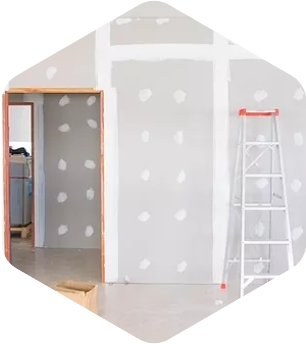
Partitions and ceilings
The EPR covers movable / removable cThis includes movable / removable walls, ceiling tiles / stretch ceilings, panels and partitions, wall and ceiling accessories (supports, fasteners, pegs, angles, hooks, studs, rails, cleats, inspection hatches), etc.
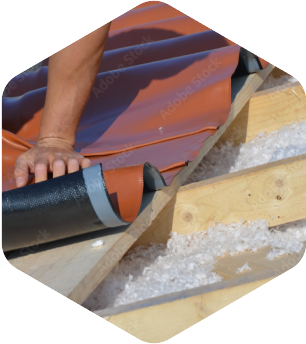
Roofing and waterproofing
Adhesives, waterproofing strips, felts, films, fittings, strips, ridges, plates, tiles, green roofing devices, roofing and waterproofing accessories (steel, closers/flashing, collars, hooks, leaf guards, pigeon spikes), etc.
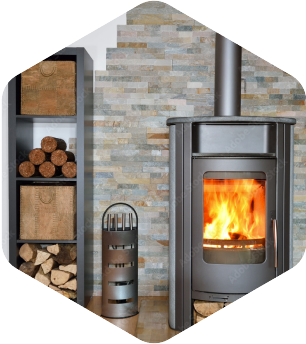
Heating equipment
Wood heating (wood fireplaces, wood/gas stoves and inserts), hot water/gas radiators, hot water towel dryers are concerned by the PMCB REP.
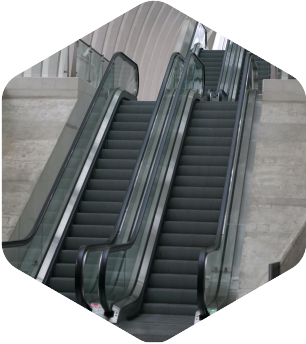
Electronic equipment and medium voltage electrical equipment
Lifting and moving equipment, medium voltage transformers and switchgear.
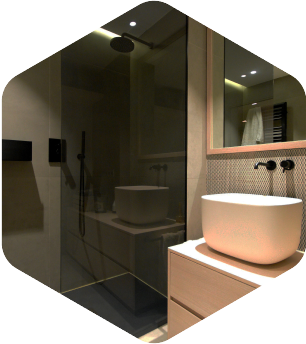
Sanitary equipment, shower room and bench
Bathtubs and basins, washbasins, sinks, walls and screens, taps, emptying and evacuation, toilets, other sanitary equipment (handrails, complete shower cubicles, inspection hatches, etc.), etc.
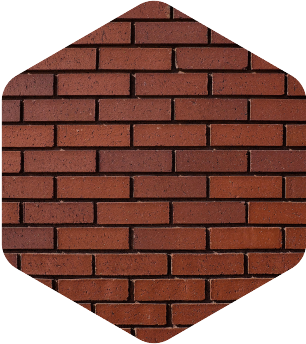
Facade
Curtain walls, facade frames, cladding products, cladding products and structures (concrete, bricks, joint covers, mesh, expansion joints, mouldings, canvas...).
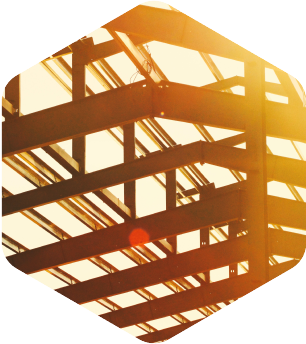
Structural work
Reinforcing steel, prefabricated elements, masonry, frameworks, floors, foundations, frames, bracing, building structures (bastaing, concrete, gratings, cement, joists, beams...), etc.
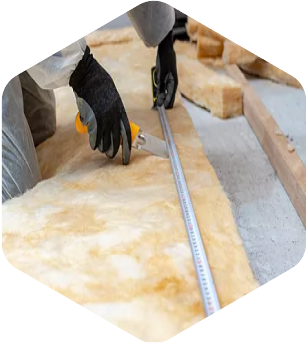
Insulators
Bulk iThe PMCB EPR concerns loose insulation products (hemp, cotton/textile fibre in bulk, wood fibre in bulk, cellulose fibre in bulk, cellulose wadding, etc.), insulation panels and rolls, complex insulation products (rafter box, lining complex, etc.), other insulation products (upstand strips, rainproof membranes, cob, etc.), etc.
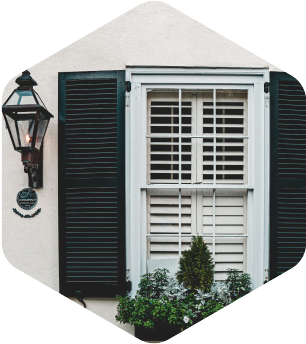
Carpentry
Windows, doors, railings, handrails, balcony dividers, protective grills and curtains, interior woodwork, garage doors, solar and pest protection, hardware and accessories, verandas and glass roofs (framework), glazing, shutters and closures, other woodwork (stairs).
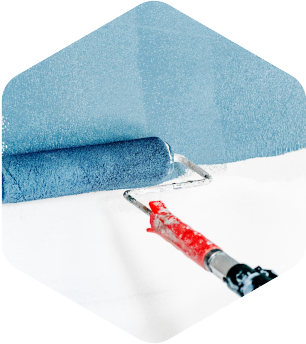
Mortars, coatings, paints, varnishes, resins, preparation and implementation products
Glues, sealants and foams, mortars and coatings, paints, coatings, stains and varnishes, other products (adhesives, resins).
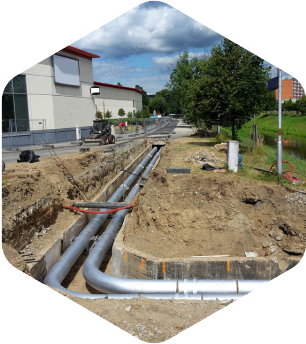
Other networks (sanitation, water and gas supply)
The materials inert, concrete, plastics, PVC, metals are concerned by the PMCB EPR.
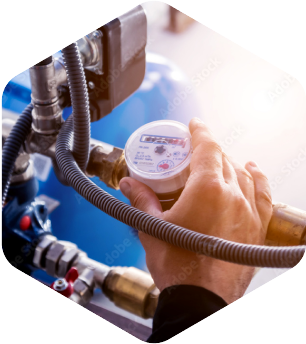
Heating and sanitary networks
Measuring and metering accessories (water meters, thermometers), network protection accessories (water hammer arrester, anti-pollution valves, filters, balancing valves), smoke and heat insulation and sealing, heating and sanitary fittings, pipes, hoses and fittings, other accessories (mortar, fixing plates for fittings), etc.
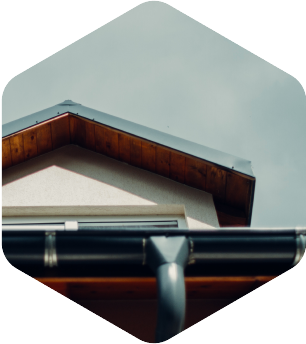
Drainage and sewage systems
Non-collective sanitation, pipes, tanks and reservoirs, gutters, downspouts and accessories, drainage systems, etc.
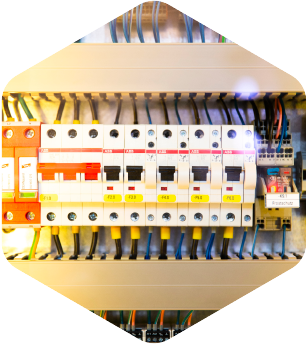
Electrical and communication networks
Cables, moldings, trunking, baseboards, cable trays and accessories, tubes, fittings and accessories, connection accessories (cable boxes, back boxes, grommets, cover seals, etc.), etc.

Siding and exterior fittings
Shelters, garages and carports, watering and water recovery, fences and gates, fixed furniture, paving, paving stones and linings, swimming pool and accessories, other outdoor equipment (fire hydrants and posts, gratings, etc.), etc.
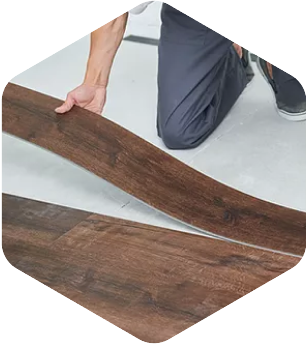
Floor, wall and ceiling coverings
Ceiling coverings (stretch ceiling...), floor coverings (floor tiles, slabs and strips, stone, wood floors, resin...), wall coverings (wall tiles, panelling, wallpapers...), other covering equipment (skirting, stair nosing, mouldings...), etc.
What are the wastes from the PMCB?
Actuellement, le gisement de déchets du bâtiment représente environ 46 millions de tonnes de déchets chaque année en France (plus que les ménages – 30 millions de tonnes) . Par comparaison, la filière REP des emballages ménagers représente environ 5 millions de tonnes de déchets produits annuellement.
Waste from the construction industry comes mainly from three sectors (demolition/deconstruction, rehabilitation/renovation and new construction) and produces three types of waste (73% inert, 22% non-inert and 5% hazardous).
Once they have reached the end of their life, the PMCBs will be taken in charge by Valobat, the future multi-material eco-organization, which will develop solutions for the marketers (territorial networking, free take-back of separately collected flows...) in order to recycle or recover them.
Sources: ADEME
What are the challenges of recycling PMCB for the construction industry?
Already concerned by several regulatory objectives, the construction sector currently recovers an average of nearly 70% of its waste, in particular thanks to the 30 million tons of inert building materials (PMCB) such as concrete used as road fill. For the waste of the second work, the rate of recovery is only of 26 %.
One of the major challenges of the sector will be to facilitate the free return of waste and to strengthen the territorial network of collection points to encourage the deposit of waste and thus work on the elimination of illegal dumping, whose cost to local authorities is estimated at between 340 and 420 million euros, but also to increase the rate of recycling and recovery of construction waste products (PMCB).
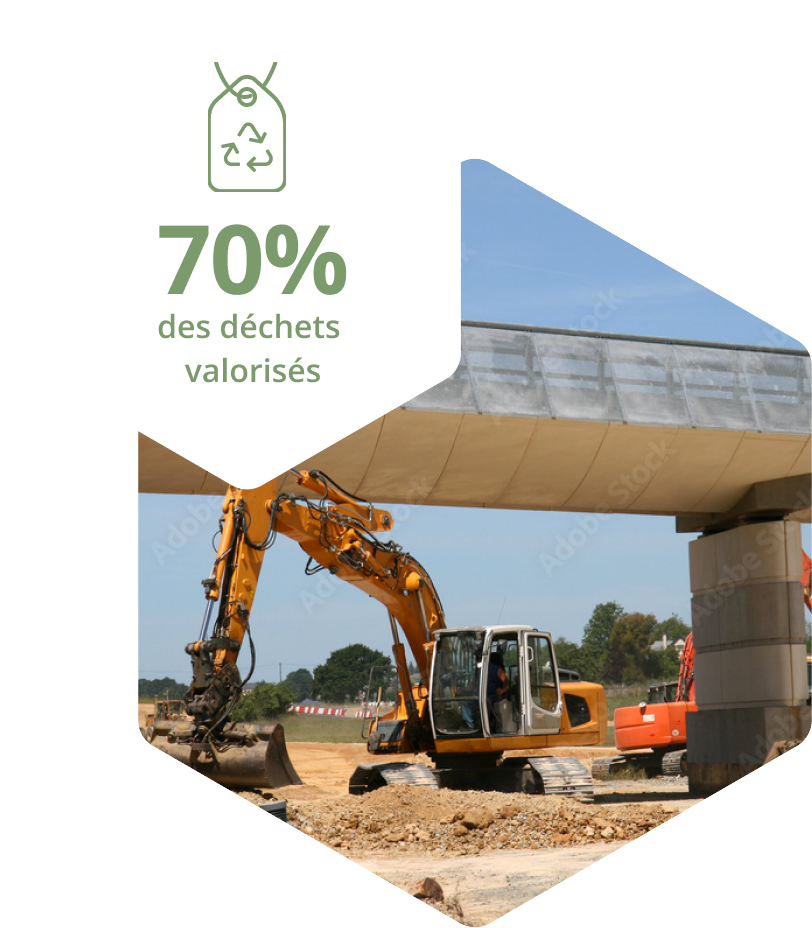
Valobat's contributions
Valobat's ambition is to become the multi-material eco-organization for the management of all building waste (PMCB), while proposing a differentiated and specific approach for each of the product sectors.
Within the framework of its missions, Valobat will take back free of charge flows collected separately and will contribute to reduce the illegal waste but will also set up collection points for all the holders of waste products or materials of the building industry.
Valobat will take back PMCB's waste free of charge from various collection points: distributors, professional or municipal waste collection centres, consolidation platforms, etc.
Valobat will provide PMCB distributors with adapted collection containers in order to allow the clean and fast sorting of waste from these products, as well as their free removal.
Thus, PMCB's waste holders will have the possibility to deposit their end-of-life products there to ensure their recycling or recovery by engaging their profession in the circular economy.
Valobat is committed to developing collection points throughout the territory. The objective is to reinforce the territorial network for these collection points by working in particular with local authorities, distributors, professional waste collection centers or waste managers.
Once the waste is collected, Valobat will also take care of its treatment and the financing related to this treatment.
Thus, we will do our utmost to facilitate the management of construction site waste, by offering a quality service to waste holders at collection points and waste collection centers managed by the local authorities working with us.


